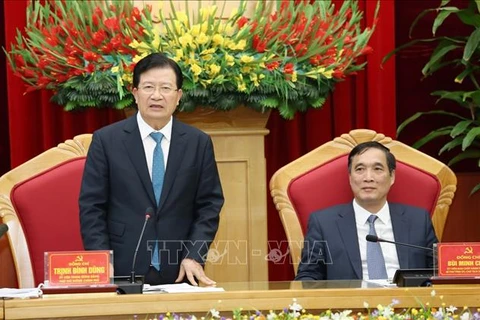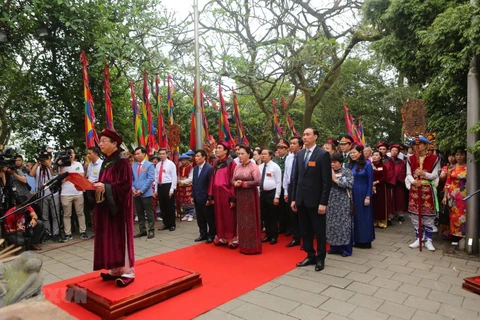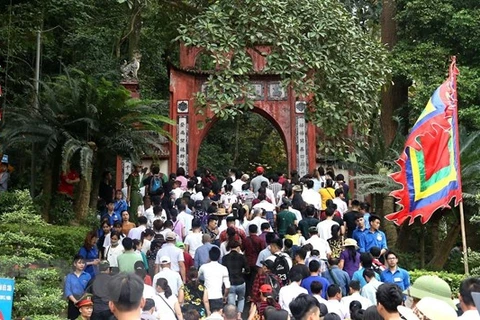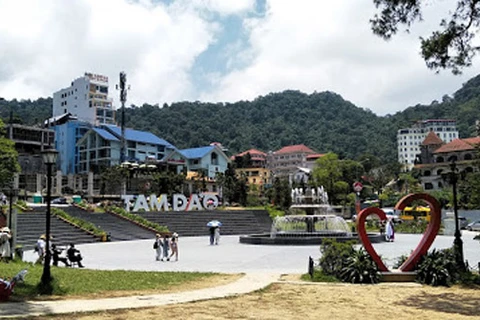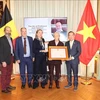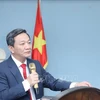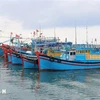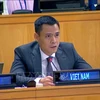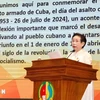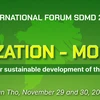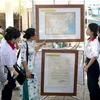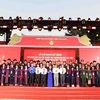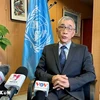Thai Nguyen (VNA) - Transport infrastructure is vital, while agriculture, processing industry and tourism are foundations for social and economic development in northern midland and mountainous regions, Politburo member and Chairman of the Party Central Committee’s Economic Commission Nguyen Van Binh has said.
Binh, who is also Secretary of the Party Central Committee, made the statement at a conference discussing social, economic development and national defence and security in the northern midland and mountainous region to 2030, with a vision through 2045, held in the northern province of Thai Nguyen on December 14.
Besides the mentioned breakthroughs and foundations, Binh emphasised protecting ecological security and national defence as keys for development, towards the formation of a regional economic space.
He urged the region to take advantage of its internal resources with the central Government’s investment as an important source in leading and opening local resources.
He also stressed rational, efficient and sustainable exploitation of resources, to harmonise economic development with ensuring ecological security and national defence and security, between exploiting natural resources and preserving landscapes for tourism development, between improving the quality of labour, stabilising the population and free migration, between the development of border trade and the enhancement of national defence and security.
According to the report of the Party Central Committee’s Economic Commission, after 15 years of implementing Resolution 37-NQ/TW on the direction for social and economic development and national security in the northern midland and mountainous areas by 2020 of the Politburo, the region have witnessed great achievements.
Notably, the average growth rate of the whole region in the period of 2004-2018 reached 10 percent, gross regional domestic product (GRDP) per capita in 2018 reached 44.86 million VND (1,900 USD) per head, nearly 12.9 times higher than in 2004.
The economic structure shifted positively towards modernity and has promoted the region's internal resources, strongly attracting investment in the region.
According to the report, the security and political situation are stable. People's lives have been improved.
The region has achieved and exceeded nine out of 12 targets set in Resolution 37-NQ/TW. One target is likely to be achieved by 2020. There are still two uncompleted targets.
However, Binh noted that the region remained the poorest region of the country.
“The economic scale of the region is still small, while its potential and advantages have not been fully exploited or improperly operated,” Binh said, adding unsustainable economic growth and low economic restructuring of most localities are problems facing the region.
“The regional economic structure has not yet met the region’s characteristics,” he said.
Attending the seminar were representatives of leaders of ministries, central agencies, leaders of provinces and departments of 16 provinces in the northern midland and mountainous region and many experts, scientists and managers.
They focused on discussing and contributing ideas to the key points for sustainable development of the region to 2030, including institutional linkages, co-ordination of socio-economic development and ensuring regional defence and security.
They also discussed poverty reduction in the region, breakthroughs in the new context to develop tourism, developing border-gate economy in association with tourism and hi-tech agriculture, mechanisms and policies to mobilise and allocate resources for social and economic development and ensure national defence and security, agreements on border trade between Vietnam and neighbouring countries to develop the border-gate economy./.
VNA

